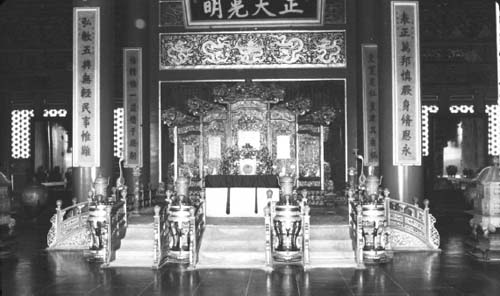Confucianism, the Literati, and Chinese Imperial TraditionsLeadership, Authority, and Religious Roles |
How are Confucian or CIT leaders chosen and given authority? |
Priestly orders or classes in many traditions derive their authority from either hereditary lineage or from a perceived ability to manage spiritual power, or both of these. The case of the Literati as a distinct class is quite different in many respects. Their role in imperial religious affairs may have originated with the office of royal astrologer, a person possessed of a type of arcane knowledge. They had to understand all there was to know about how to plan imperial matters in perfect coordination with the rhythms of the cosmos. But the Literati’s continued prestige rested on their identification with a broader range of knowledge—that of literature, history, and writing. Their privileged access to the canonical texts, the Classics and Books of Confucian tradition, gave them unquestioned authority. The Literati oversaw virtually every detail of imperial ritual and administration (so much of which was highly ritualized) and were responsible for propriety and auspiciousness in all affairs of the state under heaven. They were, in effect, a kind of lay priesthood whose patron and model was Confucius.
Prospective members of the Literati underwent extensive education designed to imbue them with the classical texts, an exquisite sensitivity to the nuances of ritual, and an appreciation of the social and political implications of the relationships implied in the great rituals. Literati achieved their various ranks within the hierarchical structure on the basis of their achievement in the imperial examinations. From about the seventh century C.E. on, an elaborate system of examinations could give access to any of three degrees or ranks, each requiring as many as ten different kinds of examination. The Board of Rites oversaw the examinations, and the Board of Civil Office made the final appointments. An important feature of this system was that, at least in theory, it bestowed authority on the basis of personal achievement rather than heredity or social status. The higher the rank of a local government’s main official, the greater the prestige of its ancestral temple.

The throne room in the Forbidden City’s Hall of Protecting Harmony, where the emperor performed important rituals.
